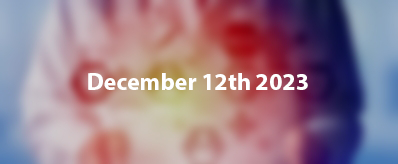Posts
NEWS
Di., 12.12.2023
AFNET trials provide key evidence for atrial fibrillation guideline recommendations
Press release
Investigator-initiated trials led by the German Atrial Fibrillation NETwork (AFNET) provide evidence for several recommendations in the 2023 guideline for the diagnosis and management of atrial fibrillation (AF) developed by the American College of Cardiology (ACC) and the American Heart Association (AHA) in collaboration with the Heart Rhythm Society (HRS). The updated guideline has recently been published in Circulation (1).
During the past 20 years, AFNET delivered a set of investigator-initiated trials in the field of atrial fibrillation. The results of these trials now provide evidence for several recommendations in the 2023 American guideline for the diagnosis and management of AF.
The 10 take home messages emphasize the importance of early and continued management of patients with AF that should focus on maintaining sinus rhythm and minimizing AF burden. This new recommendation is based on the results of the EAST – AFNET 4 trial (2). The up-to-date guidance contains the following new recommendation: “In patients with a recent diagnosis of AF (<1 year), rhythm control can be useful to reduce hospitalizations, stroke, and mortality.” (Section 8.1 on rhythm control therapy). This means that early rhythm control therapy should be considered in all patients fulfilling the enrolment criteria of EAST – AFNET 4. Several sub-studies of EAST – AFNET 4 have influenced the recommendations on rhythm control in patients with atrial fibrillation and heart failure, in asymptomatic patients, and in other subgroups.
The results of the AXADIA – AFNET 8 trial (3) are mentioned in a text considering anticoagulation with apixaban in patients with AF and hemodialysis. The authors of the guidelines stated: “Two small trials (one of which is AXADIA – AFNET 8) of apixaban versus warfarin in patients with AF on hemodialysis could not show differences in safety or efficacy outcomes but significantly more bleeding than stroke events.” (Section 6.8.4. chronic kidney disease).
A recommendation concerning anticoagulation therapy before and after catheter ablation (section 8.4.4.) is supported by the findings of the AXAFA – AFNET 5 trial (4). The new guidance is: “In patients on a DOAC (direct oral anticoagulant) who are undergoing catheter ablation of AF, catheter ablation should be performed with either continuous or minimally interrupted oral anticoagulation.”
The older AFNET trials ANTIPAF – AFNET 2 (5) and Flec SL – AFNET 3 (6) have also been incorporated. The guidelines refer to ANTIPAF – AFNET 2 (section 8.3.4. upstream therapy) and Flec SL – AFNET 3 (section 8.2.2. electrical cardioversion) in their guidance on how to use sartans and sodium channel blockers to prevent AF and recurrent AF.
AFNET board member Professor Andreas Goette, St. Vincenz Hospital Paderborn, Germany, concludes: “Overall, this new set of guidelines reflect the growing impact of AFNET-led investigator- initiated trials to help define the best management in patients with atrial fibrillation.”
Professor Paulus Kirchhof, University Medical Center Hamburg-Eppendorf, Hamburg, Germany, states: “As chair of AFNET, I am very pleased that the AHA/ACC/HRS guidelines writing committee recognizes the work of AFNET. This is a very welcome recognition of AFNET in the year of its 20th anniversary. We are indebted to all patients and partners who helped us to deliver this work. This recognition is motivation to continue our work to improve outcomes for patients with atrial fibrillation.”
The AFNET studies are investigator-initiated trials with AFNET as sponsor. They are co-financed by AFNET, public partners, and industry partners. EAST – AFNET 4 and AXAFA – AFNET 5 were partially supported by the German Center for Cardiovascular Research (DZHK). ANTIPAF – AFNET 2 and Flec SL AFNET 3 were partially funded by the German Federal Ministry of Education and Research (BMBF).
References
(1) Joglar JA et al. 2023 ACC/AHA/ACCP/HRS Guideline for the Diagnosis and Management of Atrial Fibrillation: A Report of the American College of Cardiology/American Heart Association Joint Committee on Clinical Practice Guidelines. Circulation 30 Nov 2023. doi: 10.1161/CIR.0000000000001193
(2) Kirchhof P et. al. Early rhythm control therapy in patients with atrial fibrillation. N Engl J Med. 2020; 383:1305-1316. doi: 10.1056/NEJMoa2019422
(3) Reinecke H et al. A Randomized Controlled Trial Comparing Apixaban with the Vitamin K Antagonist Phenprocoumon in Patients on Chronic Hemodialysis: The AXADIA-AFNET 8 Study. Circulation 2023;147(4):296-309. doi: 10.1161/CIRCULATIONAHA.122.062779.
(4) Kirchhof P et al. Apixaban in patients at risk of stroke undergoing atrial fibriallation ablation. Eur Heart J. 2018;39(32):2942-2955. doi: 10.1093/euheartj/ehy176
(5) Goette A et al. Angiotensin II-antagonist in paroxysmal atrial fibrillation (ANTIPAF) trial. Circ Arrthythm Electrophysiol. 2012;5(1):43-51. doi:10.1161/CIRCEP.111.965178
(6) Kirchhof P et al. Short-term versus long-term antiarrhythmic drug treatment after cardioversion of atrial fibrillation (Flec-SL): a prospective, randomised, open-label, blinded endpoint assessment trial. Lancet. 2012;380(9838):238-46. doi: 10.1016/S0140-6736(12)60570-4.
About the Atrial Fibrillation NETwork (AFNET)
The Atrial Fibrillation NETwork is an interdisciplinary research network comprising scientists and physicians from hospitals and practices dedicated to improving the management of atrial fibrillation through coordinated research in Germany, Europe, and worldwide. Its main objective is to conduct high quality investigator-initiated clinical trials and registries on a national and international level as well as translational research projects. The AFNET continues the long-term activities of the network which has been funded by the German Federal Ministry of Research and Education over a decade. Since January 2015, specific projects and infrastructures of the AFNET are funded by the German Centre for Cardiovascular Research (DZHK), and some projects by EU research grants. AFNET has long expertise in the management of atrial fibrillation, but also provides support for work in other fields informing cardiovascular care. The results of 20 years of clinical and translational research improved the lives of patients with cardiovascular diseases and influenced treatment guidelines.
www.af-net.eu
Press contact
Angelika Leute (PhD)
Phone: +49 202 2623395
a.leute@t-online.de
